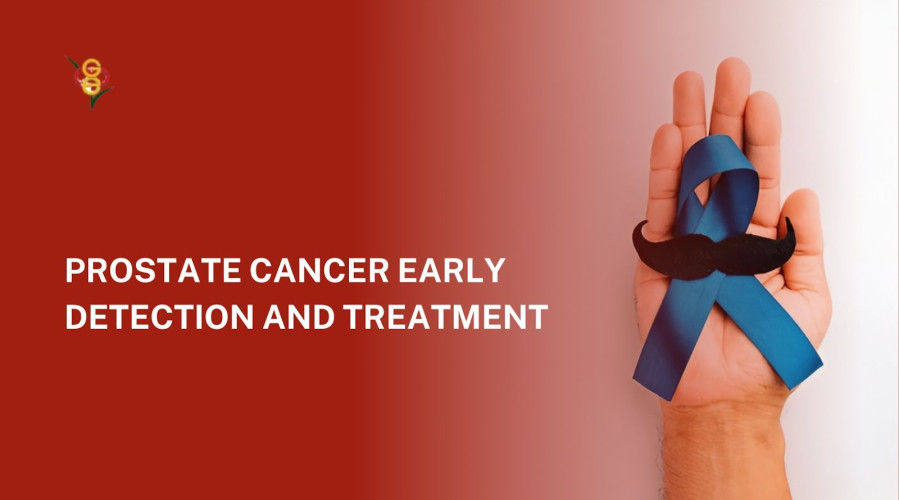Discover why advanced piles care in Chennai is the best choice, offering expert specialists, modern laser treatments, safe procedures, and faster recovery.
Prostate Cancer: Early Detection and Treatment Options

Understanding Prostate Cancer
Prostate cancer is one of the most common cancers in men, particularly in those above the age of 50. This article is about the male reproductive gland; for other uses, see Prostate (disambiguation). Prostate cancer occurs when cells in the prostate grow uncontrollably. This is important, as early detection is crucial to effective prostate cancer treatment and better survival rates.
Signs and Symptoms of Prostate Cancer
At first, prostate cancer often doesn’t show any symptoms. But, as it advances, men can have:
- Difficulty in urinating or weak urine flow
- Frequent urination, especially at night
- Blood in urine or semen
- Pain in the lower back, hips, or pelvis
- Erectile dysfunction
These signs may also occur due to benign prostate conditions, such as an enlarged prostate, so be sure to talk with your doctor. Hence, regular check-ups are of utmost importance for prostate cancer treatment.
Importance of Early Detection
Regular screenings have improved this situation, though prostate cancer is more treatable when it is diagnosed earlier. Screening regular ayudantes find the cancer before it spreads. The most common screening tests are the following:
- PSA (Prostate-Specific Antigen) Test – This is a simple blood test that measures the PSA levels. But elevated levels can suggest prostate problems, though additional tests are needed to determine whether cancer is present.
- Digital Rectal Exam (DRE) – A doctor examines the prostate gland for abnormalities by putting a gloved finger into the rectum.
- Biopsy – If levels are high or something fishy is found, a small tissue sample is taken and tested.
Men 50 and older should discuss regular screenings with their doctors. People with prostate cancer in the family should begin getting screened earlier.
Treatment Options for Prostate Cancer
Treatment depends on the stage of cancer, your age and overall health, as well as and your preferences. Here are the standard treatment options:
- Active Surveillance – If the cancer is slow-growing and not symptomatic, doctors may suggest simply monitoring it rather than treating it right away.
- Surgery (Prostatectomy) – In cases in which cancer is localized in the prostate, surgery can completely remove the gland. This is a standard treatment for early-stage cancer.
- Radiation Therapy –It destroys cancer cells by using high-energy rays. It also does work for advanced prostate cancer as well as early-stage.
- Hormone Therapy – Because prostate cancer cells grow in the presence of male hormones such as testosterone, hormone therapy reduces or blocks these hormones, helping slow cancer growth.
- Chemotherapy – This is when the cancer has spread beyond the prostate. It is about administering drugs to kill cancer cells, and is typically recommended for late-stage cases.
- Immunotherapy and Targeted Therapy – Newer treatments assist the body’s immune system in fighting cancer or targeting specific cancer cells. These are typically reserved for instances when other treatments aren't successful.
While prostate cancer primarily affects the male reproductive system, it is often discussed alongside other cancers, including digestive cancer treatment, as both require early detection and personalized care for better outcomes. Consulting a specialist is essential for determining the best treatment plan.
Living with Prostate Cancer
With the proper treatment, many men manage prostate cancer successfully. That is, dietary changes, consistently working out, stress management, among other; will help = improve the overall health. Support groups and talking to health professionals about worries can also aid in coping with the disease.
Prostate cancer outcomes are highly dependent on early disease detection. Regular screenings, a healthy lifestyle and timely medical attention can help. Step into better health -- if you or a loved one are at risk GEM Hospital provides expert care for Prostate Cancer that includes Prostate Cancer Detection and Treatment. Contact us today to book your consultation.
Blogs & Article
Learn why early and advanced pancreatic cancer surgery matters for improving survival rates, reducing complications, and enhancing recovery outcomes.
Discover why advanced laparoscopy is the future of hernia surgery, offering minimal pain, smaller incisions, faster recovery, and improved outcomes.


